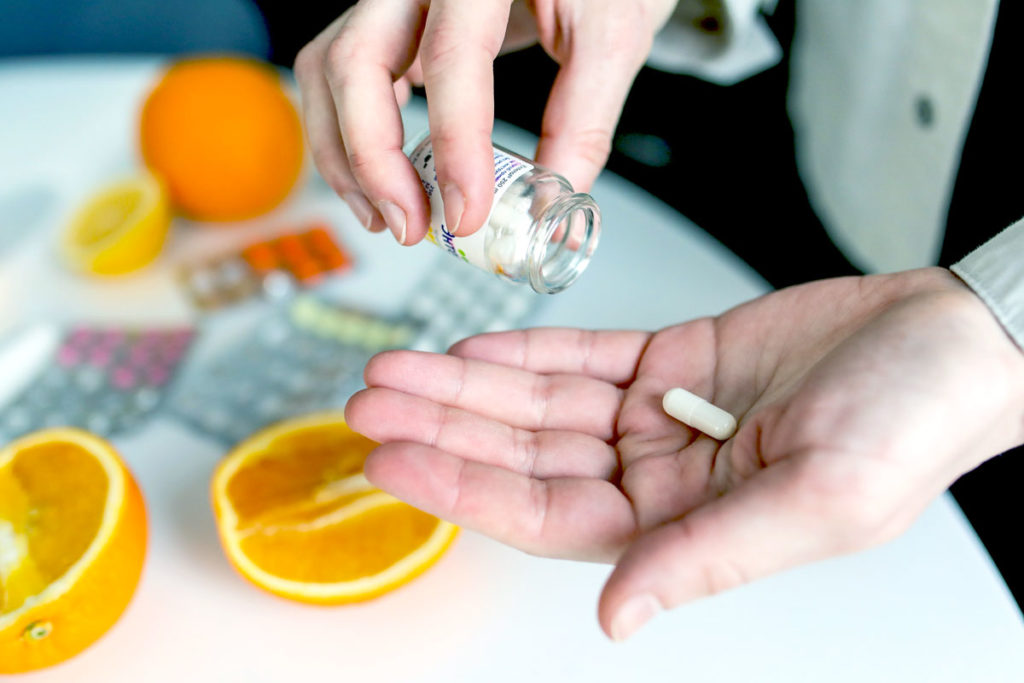
Prescription Drug Addiction Treatment
Signs, Withdrawal Symptoms & Facts
Helping You Overcome Prescription Drug Addiction
One of the fastest growing treatment issues we are seeing at the 10 Acre Ranch is that of addiction to a wide variety of prescription drugs. Some of the more commonly abused prescription drugs include:
- Valium
- Ativan
- Vicodin
- OxyContin
- Adderall
- Percocet
- Xanax

The above are just a few of the over-prescribed and highly addictive medications that are commonly used to effectively treat pain, anxiety, and other ailments. All of these drugs have a respectable and necessary medical use and have helped alleviate symptoms such as pain for millions of people. However, since they do produce a euphoric feeling they can be easily abused. Abusing prescribed drugs frequently leads to addiction. Medications that are legally prescribed by a doctor for a real medical condition can be the starting point for a person’s addiction or the relapse point for someone in recovery.
Call Now to Qualify for Free Travel to Our Facility
Our expert & caring staff on site are available 24/7. Call us today.
What to Expect at Our Prescription Drug Rehab Program in Southern California
At 10 Acre Ranch, we have worked with patients who were addicted to many types of prescription medications as well as non-prescription street drugs and alcohol. We have over two decades of experience helping men who are struggling with the disease of addiction. Our facilities are located in beautiful settings which have been designed to help the spirit, body, and mind recover.
For most people, this full process takes about two weeks. However, you can likely move out of detox and into treatment after the first week.

What Happens When a Person is Addicted to Prescription Drugs?
Prescription medications can be the starting point for addiction. The effects from these drugs are powerful and seductive. The feeling produced is so pleasurable that some people take more than the prescribed dosage to recreate and intensify the feeling, instead of taking the drug as prescribed to alleviate a medical symptom such as pain.
For patients who suffer from chronic pain, they may take more of the narcotic drug to alleviate pain over time, or maybe the time-released pain medication, such as OxyContin, doesn’t work like it’s supposed to and they need to take another dose sooner than prescribed to alleviate the pain that occurs when the effects of the first dose wear off.
Many users of prescription medications don’t expect the phenomenon of tolerance buildup. The scary thing about these medications is that once you start taking them, it takes more of the drug over time to achieve the desired effect. So, the person starts taking more to produce a feeling or alleviate physical pain, but while they are upping their dosage the body also becomes increasingly dependent on the drug.
When the person who is taking the medication attempts to stop taking it, they cannot achieve a normal feeling of well-being without the drug. The body has become dependent on the medication to produce the normal feeling of well-being. The vicious cycle has fully begun.
In a nutshell, while the person was taking the medication too often and for too extended of a period, the brain drastically slowed down making the natural chemicals that produce a normal feeling of well-being; the brain had become used to the influx of chemicals. Hence, when the user stops taking the medication it takes some time for the body and brain to start producing the natural chemicals and achieve balance.
It is this lapse, due to altered body chemistry, that causes cravings and withdrawal symptoms. These symptoms or feelings of discomfort take place during the time the body is in repair and on its way back to normal. The body now feels very uncomfortable and it wants its owner to seek more of the drug that will quickly relieve the feeling of discomfort, and here we have the addiction in full effect.
What Happens When the Meds Run Out?
Eventually the drugs will be hard to come by and the person who is addicted either decides to enter treatment or continues using. For a time, it can be easier to find more of the substance to achieve the normal feeling, but after a while it starts producing unmanageable situations in the person’s life. Loved ones are concerned that there is something not quite right.
The individual starts missing work because they cannot function without the drug. They might start having encounters with the law as the effects produced by the prescribed medications impair the ability to drive, or they might have other run-ins with law enforcement due to their illegal drug use.
The person continually seeks refills
The person continually seeks refills from the doctor for the medication, long after the initial reason for its use has passed. The doctor, if they are familiar with addiction, tells the patient that there will be no more refills.
The patient starts seeking out other doctors who may be less scrupulous about writing prescriptions. The person may be seeing a few doctors and getting multiple prescriptions. The struggling person might try to find someone who is selling the medications illegally. If the person runs out of suppliers they may start replacing the pills (especially if they are pain medication) with heroin.

Of course, the person has long since changed into somebody with a whole new problem than the ailment that caused the original prescription. They now have another very serious life-threatening medical condition—addiction.
A National Epidemic of Painkiller-Related Deaths in America
The scourge of prescription painkiller addiction is rapidly claiming millions of victims from all walks of life, including:
- Seniors
- Minor Children
- Working-Class People
- Retirees
- Working Professionals
The number of people who have entered treatment for prescription medication has quadrupled from 2004 to 2010
Surgeon General Vivek H. Murthy recently published the first-ever surgeon general’s report on addiction entitled, Facing Addiction in America. Dr. Murthy strongly suggests that viewing addiction as a moral failing is counterproductive and harmful.
The problem we face is a medical problem and it makes as much sense to ostracize and marginalize those suffering from the disease of addiction as it would to blame people who are suffering from cancer.
We believe a strong foundation for recovery addresses the entire person
Our dedicated staff of experienced physicians, counselors, and other recovery support professionals share a passion for helping to turn the tide of the national addiction epidemic – one human being at a time. We believe that each person who comes to us for help deserves the best available treatment to return to health and resume their place within their family and the community.

Addiction is a problem that affects us all, and we know that, for each patient we help to recover, we are reclaiming a universe of life and hope for an entire network of family, friends, employers, pets and others who care about the patient.
10 Acre Ranch is fully licensed by the California Department of Health Care Services to provide residential treatment for addiction. Fill out our confidential contact form or call 877-228-4679 now to begin the process of recovery for yourself or your loved one. We are here for you now.
Quit Abusing Prescription Drugs at 10 Acre Ranch in California
Anyone who is in recovery and has been abstinent for some time must use extreme caution when prescribed these highly addictive medications. In fact, unless it is absolutely necessary (like after a major surgery) most recovering people tell their doctor in advance, “I am in recovery and please do not ever give me any mood-altering medications.” The reason for this precaution is that it is the disease of addiction that recovering people live with. It isn’t the substance that’s the problem, it is the disease.

There is an expression, “A drug is a drug is a drug.” For example, someone who is alcoholic and has been in recovery for years can easily start the relapse process by taking any of the above-named medications. The recovered alcoholic will again experience that chemically-induced feeling of ease and comfort, and whatever drug produces this effect will eventually lead them back to their drug of choice, in this case alcohol, and start the entire nightmare of active addiction once again.

Your path to recovery starts here
Our expert & caring staff on site are available 24/7. Call us today.
What Our Clients Say













